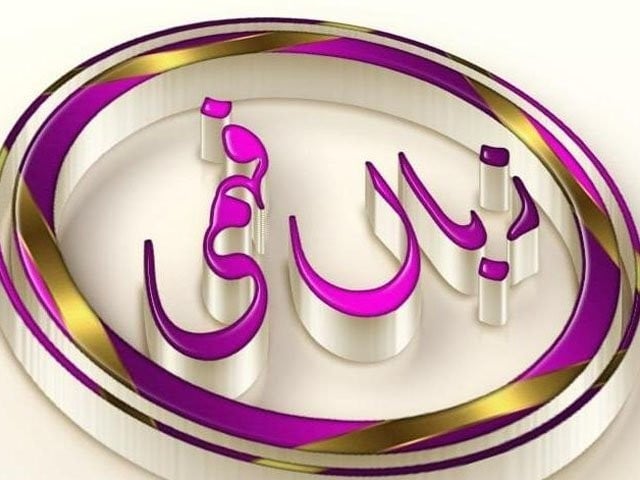What to do, what to suggest, what to predict
Rampur language is recognized everywhere
(President Rampuri)
For the new generation, “Roheil-e-Khandi” or “Ram Puri” Urdu techniques may be unfamiliar, but the old generation is well aware of it, and the fact that the majority of them are also familiar with the name only and it is very difficult. It happens when someone asks you to tell me an example of this tone or dialect. Famous examples of this dialect include ‘Utanga’, ‘Achkan’, ‘Int Shunt’, ‘Budhana’, ‘Tunta’ and numerous other words.
Note also the point here that whether it is a dialect or the dialect of another region, naturally, the standard, formal literary language is sometimes, somewhere, entered and incorporated.
Similarly, if the dialect words of that particular dialect are included in the standard dictionaries, then the standard language is also spoken in its own specific areas as is or with additions. It is very rare that the standard accent is less visible or completely missing.
Rohil Khand [Rohilkhand] A number of Pashto words and phrases are present either intact or in altered form in the distinctive dialect of Pashto, and examples of this type of dialect are hard to find anywhere else, at least in undivided India, except in the ‘frontier’ of what is now our Khyber Pakhtunkhwa province. For the information of the uninitiated, Rohilkhand refers to the part of undivided India that included present-day Bareilly, Rampur and Badayan.
This area is the northwestern part of present-day Uttar Pradesh (formerly UP), where the majority of the population was and is Muslim. Amroha, Bahjoi in this area during the Mughal era [Bahjoi]Bijnor, Kakrala[Kakrala] sour[Khutar], Moradabad, Najibabad, Pilibhit and Shahjahanpur were also included. The Yusufzai Pathans built the Rohila Empire in this region and even today a large part of the Urdugo community who migrated from India consists of people who have their roots in this Rohil Khand.
The origin of this empire was that Daud Khan, on the orders of the Mughal crown prince Aurangzeb Alamgir, established his settlement there after the victory against the rebellious Hindu Rajputs of Katihar. At that time twenty thousand soldiers were recruited from Yusufzai, Ghori, Usmani, Ghilzai, Bardich, Marwat, Tarin, Kakar, Naghar, Afridi and Khattak tribes and were added to the Mughal army.
Happy with the performance of these Pathans, Aurangzeb recruited twenty five thousand more soldiers, while the population of these Pakhtuns in this part of India continued to expand from time to time.
In the ancient Hindu books Mahabharata and Ramayana, it is referred to as Madhyadesh [Madhyadesh] And Panchala [Panchala] It was said Literally, Rohil Khand means, Rohila or the land of the Rohilas, who were the Pashto speaking people who migrated from ‘Roh’ and settled in India. Roh applies to the vast ‘Pashtun/Pakhtun’ region extending to Swat, Bajaur, Sibi, Hasan Abdal, Kabul and Kandahar/Kandahar. The term Rohilkhand became popular in the seventeenth century.
Here is an excerpt from an article written by Khaksar’s Facebook friend Mr. Muhammad Farqan Sambhali: “Rohilkhand is located in the northwestern region of Uttar Pradesh. In ancient times, this area was known by names like Panchal and Kathir. Through Emperor Ashoka, Mitra Rajas, Gupta Dynasty, Harsh Vardhan, Parihar Rajas, this region came under the control of Tumaras.
After the conquest of Delhi by the Muslims, a large number of Muslim families from Arabia, Iran, Afghanistan, Turkestan etc. came and settled in North India. There was also a large number of Islamic preachers among them. Although Syed Salar Masood Ghazi (may Allah have mercy on him) had arrived in Roheil Khand before that. In 1742, Nawab Syed Ali Muhammad Khan announced the establishment of his independent government by occupying the territory of the Kathir Yeh Rajputs at the tail of the Rohila army and the Afghan chieftains, and it was named as Rohilkhand.
The name was given on the basis of the large population of Rohillas in the area. At present Rohilkhand consists of 9 districts of Bareilly Moradabad Commissionerates. These districts include Bijnor, Bareilly, Amroha, Moradabad, Sambhal, Rampur, Badayan, Pelibhait and Shah Jahanpur.” {Brief History of Rampur. Rohil Khand, Subjat Muttahida According to Maulvi Firuzuddin’s statement, Khatir (Kathir) was earlier called the districts of Moradabad etc.
According to the same book, Amjad, the ancestor of the Rohils, Sardar Dao Dakhan came here in 1707 to join the Mughal army with 100 followers from Mouza To Rishhamat, Mulk Roh (probably Afghanistan). However, the summary of the description does not include when and how long the Pakhtun or Pashtun or Afghan conquerors ruled the Indian region. It is obvious that while writing on the topic of linguistic connections, collaboration and harmony between Urdu and Pashto, this important aspect must also be seen. Currently we limit our testing to a limited area.
The development of Urdu literature in this vast region continued for centuries and even today the role of Rohil Khand in the field of folk literature cannot be ignored. When it comes to the ancient folk literature of Urdu, the research of some researchers on Rohil Khand should definitely be kept in mind. “The folk songs sung in the Muslim community of Rohilkhand can be divided into the following categories:
(1) Domestic life songs (2) Belief based folk songs (3) Seasonal folk songs (4) Military folk songs.
(1) Domestic Life Songs: (Excerpt)
Check out the Makhra, a song sung on the occasion of pregnancy and childbirth in Pilibhit district of Rohilkhand. In this song, the conditions of pregnancy and the desires of the pregnant woman are expressed:
Raja Ratna Ray, Kunwar Ratna Ray/Jaman Mohe Ladoo
The first month of labor
Plant flowers and fruits
I will go again and again and again
Load the jamon mohe
On the birth of a child in Rohilkhand, songs are sung by the mahallas, women of the family, domanis and marathas to celebrate the birth of a child, give congratulations and express the responsibilities associated with the relationship.
‘Chhatti’ holds great importance in the birth ceremonies, on this day the mother is bathed by the Nandans and receives her nega. In the villages of Shahjahanpur district, this ‘Chhatti’ song is often sung:
Nand is sitting here, Bhavj is sitting there
Wash both mouths
Bhavaj ji Jaya Lalna, I will take the bracelet
Sham hui ren beti po phati
Bhavaj Jaya Lalna, I will take the bracelet.” (Tradition of Folk Songs in the Muslim Society of Rohilkhand: Muhammad Farqan Sambhali). This is just a glimpse, for more details see:
https://ncpulblog.blogspot.com/2019/03/blog-post_56.html
Before discussing the topic further, a very strange disclosure is also necessary. I have not come across any list on the internet of specific ‘Ahl Zaban’ poets and writers of this region who have served the language for centuries, or any consistent, separate book about them. There is a long list of writers from Bijnoor, Bareilly, Amroha, Moradabad, Sambhal, Rampur, Badayan, Pilibhit and Shah Jahanpur as well as Farrukhabad which would be compiled under the theme of “Poets, Writers, Journalists of Rohilkhand”. A research paper can be written.
Included in the list of numerous poets, we find incomplete information on the internet about the famous poet, ghalibyat, Partu Rohila Sahib who was born on November 23, 1932 in Bareilly, migrated to Pakistan with his family in 1950 and died on September 29, 2016. Died in Islamabad. Among the twenty-four books of Partu Rohila, “Persian Letters of Ghalib and Ghamgin” (Islamabad, the authoritative national language), Nama Hay Farsi (Ghalib), Kaliat-e Atta (Compiled), Ik Daya Dariche Mein (Poetry), Voice (Poetry). , Daam-e-Khyal (verses), Shabt Rang (poetry), Safar Dairyan Ka (poetry), Safar Gizasht (America’s travelogue), Ren Ajiara (couplets), Navay Shab (poetry), Partu-wi-Shab (poetry) are particularly noteworthy. He also translated the poems of Persian poet Farough Farrokhzad into Urdu. It is interesting that Mr. Partu chose to write Rohila instead of adopting the Barelvi dialect, because of his descent from Hafiz Rehmat Khan, Wali Rohil Khand.
Guess how wrong people are who say and believe that everything is on the internet and that the book has become or will have zero value now. Moreover, I also want to say that it is also necessary for the people of literature to collect the capital of Roheil Khandi literature in a paper or a book. Here is an example from my private circle of friends.
My dear friend Navid Zafar Suhrawardy revealed that his uncle, Mr. Muhammad Zarif Khan, had written some fictions in Roheil Khandi dialect which he does not have, but may be preserved with him. I had peace with that elder and in his last days Khaksar asked him about it, so he also said that they are not known where they are now, only two or three were written, they were not published anywhere. After some time he also died. Thus, this unique sample of writings could not be preserved.
The second city of India nicknamed “Dar-ul-Swar”, the former state of Rampur (previously “Dar-ul-Swar” Burhanpur, I have written an article in “Zaban Fahmi”) was once called Mustafaabad. Very fertile in terms of literature, this state emerged in 1774 and its first ruler was Nawab Faizullah Khan, whose scholarly services include the establishment of Madrasa Aliya and Raza Library.
The history of Rampur state has also been witnessed by many experts. Just saw a fresh name on the internet, Ms. Sadia Saleem Shamsi’s book “Rampur. A commentary on the scenario of Tarikh and Tehzeeb Wadab” was written very well and rather critically. I wish this book was also available to me. It was mentioned that Rampur’s old name Mustafa Abad (aka Mustafa Bad) is also related to this section.
Mustafa is a wonderful city
May God bless you to keep it
Everyone calls it Rampur
We call it Arampur
(Dagh Dehlavi)
A brief discussion about all the poets and poets of Rohilkhand, including Rampur, can be covered in several episodes of our series Zaban Fahmi. Presently here are some samples from Roheil Khandi or Ram Puri Urdu Vocabulary:
Apa: elder sister, sister and apa self (i.e. own self): Similarly spoken in Rampur.
Ubbo: spoken in the sense of illusion, honor and status; Now your mother has become, so let her remain.
Uttu: Correct unstressed Uttu, but in Rampur it is spoken only with stress. Wrinkles or impressions made by a piece of metal on cloth for decoration. A piece of metal or tool used for this.
(Reading the dictionary is useful for other details: সাস্স্যান) Other meanings: to beat and bleed, to walk while ironing, to walk (ghist ghastkar: সাস) to walk, to rub the feet on the ground.
Utanga: a high, especially ankle-high pajama that looks unsightly.
Ujbak [Ujbak]: Masculine; Uzbek or corruption of Uzbek, meaning native of Uzbekistan. Khabt al-Hwas in Rampuri term (Makhbout al-Hwas:
Ambar Chambar: A form of idle talk and verbal sparring.
Achkan: Sherwani (Here Achkan refers to a small sherwani that comes just below the knees: S.S.)
Akhta, Akhta: Pashto for busy, busy and shida means lover. In the dictionary, it means Budhiya, Khassi and Khajasara.
Akhor: dirty raw, very bad, dirty.
Adga: unexpected, sudden
Uddudela: अभुट हुवस
Adiyal: A horse that stops in the way while walking, also a stubborn person (also used in other areas: ساس).
Ulla Palla: To and fro, this and that (i.e., two different, contradictory or opposite things or things: س اس); Similarly, ulli kara, palli kara means this side and that side (our original here means urli kara and purli). side is also used and will be common among unspecified UPs:
Al-Ghu’: A word of contempt. A fool of the highest order, a fool.
ALLAH TALLALLE: To act recklessly in a matter like “He is robbing Allah of his wealth”. (Our usage here is slightly different, like see so-and-so’s Allah talala? Their Allah talala does not end, etc.)
Illum Ghulam: things that are said without thinking, here and there, different, unconnected, useless things (we also call it like this here: Look at it, Illum Ghulam is being eaten, there is no concern for health: S.S.)
( to be continued )
(function(d, s, id){
var js, fjs = d.getElementsByTagName(s)[0];
if (d.getElementById(id)) {return;}
js = d.createElement(s); js.id = id;
js.src = “//connect.facebook.net/en_US/sdk.js#xfbml=1&version=v2.3&appId=770767426360150”;
fjs.parentNode.insertBefore(js, fjs);
}(document, ‘script’, ‘facebook-jssdk’));
(function(d, s, id) {
var js, fjs = d.getElementsByTagName(s)[0];
if (d.getElementById(id)) return;
js = d.createElement(s); js.id = id;
js.src = “//connect.facebook.net/en_GB/sdk.js#xfbml=1&version=v2.7”;
fjs.parentNode.insertBefore(js, fjs);
}(document, ‘script’, ‘facebook-jssdk’));



